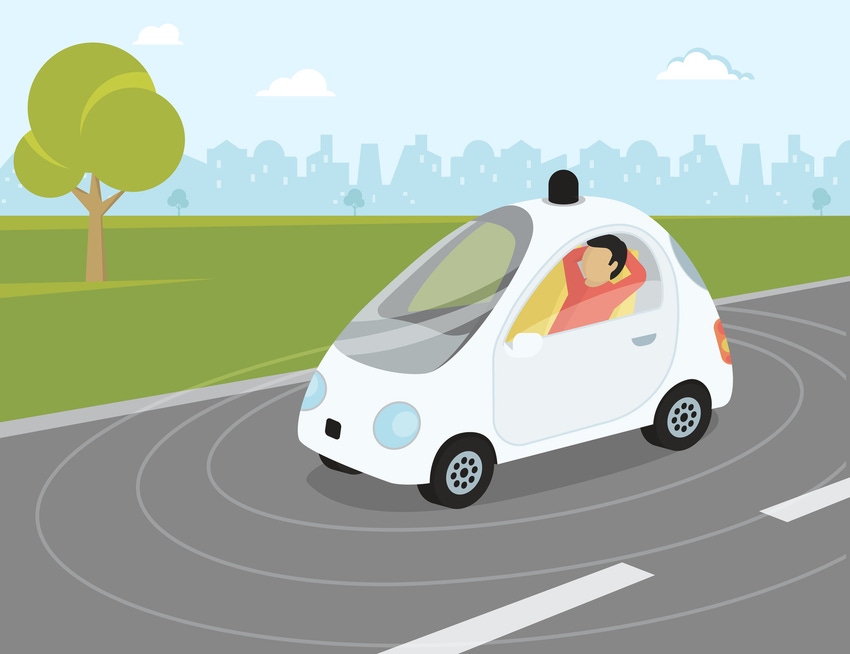The UK might be a world leader in connected and autonomous vehicles, but Brexit could throw out a few roadblocks and speedbumps.
April 4, 2019

The UK might be a world leader in connected and autonomous vehicles, but Brexit could throw out a few roadblocks and speedbumps.
According to a new report produced by Society of Motor Manufacturers and Traders (SMMT) and Frost & Sullivan, the UK is one of, if not the, leading nation worldwide in the connected and autonomous vehicles segment. This position has been created through notable private and public investments, four test beds, three highway test sites and more than 80 R&D projects.
The UK also has digital infrastructure which enables the concept of autonomous vehicles, most notably reasonably high average 4G speeds, 77% geographical coverage and the highest percentage of roads which could theoretically be automated by 2030, one in five road miles. These figures are also backed up by friendly policies, most notably the world’s first insurance legislation for autonomous vehicles, which was introduced by Parliament in 2018.
All of these factors combined creates the most attractive market for connected and autonomous vehicle developers, according to the SMMT and Frost & Sullivan, though Brexit could throw all of this into chaos.
“The UK’s potential is clear,” said Mike Hawes, SMMT CEO. “We are ahead of many rival nations but to realise these benefits we must move fast. Brexit has undermined our global reputation for political stability and it continues to devour valuable time and investment. We need the deadlock broken with ‘no deal’ categorically ruled out and a future relationship agreed that reflects the integrated nature of our industry and delivers frictionless trade.”
While many are bored of Brexit now, changing the channel when the news shoots across to the Houses of Parliament, it is at a critical juncture. The decisions which are being made over the next few weeks will not only decide the future success of the UK as an economic power, but also how attractive it is as an investment destination for businesses around the world.
As it stands, a pondering, sluggish and seesawing political system does not encourage any business with policy certainty and consistency. The UK political and economic landscape is the laughing stock of the world and before too long this will hit hard with consequences.
However, the benefits of this industry are clear. The report suggests £62 billion could be added to the UK economy by 2030, if the country can ready itself appropriately. £25 billion could be realised through the value of time where consumers can make more use of the time spent in their vehicles, more efficient journeys lead to greater productivity and labour market flexibility could add £15 billion, while costs in insurance, running costs and parking could save £6 billion. New segments, such as electronics and data services could also contribute £18 billion.
“The UK already has the essential building blocks ��– forward thinking legislation, advanced technology infrastructure, a highly skilled labour force, and a tech savvy customer base – to spearhead CAV deployment over the next decade,” said Sarwant Singh, Senior Partner and Head of Mobility, Frost & Sullivan.
“However, it will require sustained and coordinated efforts by all key stakeholders, especially the government, to realise the significant annual economic benefits forecast for the UK from CAV deployment by 2030 and drive the vision of safe, convenient and accessible mobility for all.”
About the Author(s)
You May Also Like








.png?width=300&auto=webp&quality=80&disable=upscale)


_1.jpg?width=300&auto=webp&quality=80&disable=upscale)


.png?width=800&auto=webp&quality=80&disable=upscale)